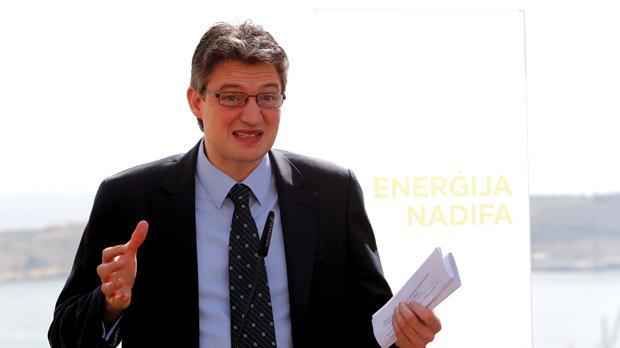The government will be imposing its budget measure whereby lease agreements for three months or more must be registered with the Department of Inland Revenue, says pressure group Up in Arms founder Patricia Graham.
This also includes renewal agreements, and is part of the Government’s solution to landlords’ failing to declare their rental income, which means tenants are charged the higher domestic rate for water and electricity.
Malta’s two-tier system dictates that an individual’s secondary property must be charged a higher domestic rate, while a primary home is charged the lower residential rate. The thinking behind this is that people with secondary homes can afford to pay a higher rate and tend to use the home less frequently.
Landlords renting properties were failing to declare their rental income. This means that any consumption of water and electricity in the rented properties are viewed by the government as having been consumed in a secondary home, with a higher, domestic rate being charged.
The Up In Arms EU Advisory Group, an NGO closely monitoring the situation, has revealed that lease agreements of three months or more must be registered with the IRD. Such contracts can be registered by both the lessor and/or the lessee, but failure to do so would lead the lessor being liable to penalties as stipulated in the Income Tax Act.

Concerns were raised about the efficacy of such a move because at present tenants are already empowered to take their lease agreement to ARMS Ltd, the state entity responsible for issuing and collecting of water and electricity bills.
In an online video expressing anger at the situation, Ms Graham (above) said:
“Light bulb moment, all rental properties of three months and longer, where have I heard that before? Tenants of form F2 may take their lease of three months or longer and apply for the lower residential rates. I don’t know any tenants that will go behind their landlord’s back to give them form F2.”
Form F2 refers to an application that was introduced this year that allows a tenant to bypass their landlord in order to pay the lower residential rate. Many tenants fear to go against their landlord’s wishes for fear that their lives would be made very difficult, and their position in the rented accommodation would become insecure.
“I seriously doubt any tenant will register their rental property with the tax office, which leads very nicely to tenants being forced to pay the higher domestic tariff. Prior to this year, the only option to be placed on the lower residential tariff was an application known as Form H, which required the landlord’s signature.”

Unknown number of families receiving government subsidies for water and electricity while being charged domestic rate
Multiple sources who all chose to remain anonymous have reported that there are a number of households who receive government subsidies on their water and electricity bills while being charged the higher domestic tariff.
It is not known how many households are in this situation, with some saying there are just dozens while others say the situation is far more serious.
Efforts to contact ARMS and Minister without Portfolio Konrad Mizzi in the Office of the Prime Minister have proved futile. Questions were sent specifically to Senior Manager Corporate Services, Human Resources and Marketing & Communications Nikita Zammit Alamango. Neither acknowledged nor answered the questions and multiple reminders sent as early as 21 March.
The Malta Independent on Sunday attempted to ascertain the amount being paid in subsidies to families who are wrongfully being charged the higher domestic rate. Efforts will continue to be made in order to receive exact figures.
Being paid subsidies while being charged the higher rate effectively means that the government is losing money from landlords failing to declare their rental income, and are losing out further from the subsidies it is paying to households to help with their water and electricity bills.

€466 deposit plus €50 application fee
Form F2 which allows tenants to bypass their landlords and go on the lower residential rate has come with a few obstacles: tenants are either required to pay a €466 deposit along with a €50 application fee, and the bill would be issued in the tenant’s name rather than the landlord’s, or have a direct debit set up with ARMS.
Authorities argue that it would ultimately be a change in consumer application, necessitating the deposit due to lack of proof of ownership. Tenants argue that this is yet another obstacle so that ARMS can enjoy the extra proceeds of primary homes being charged at the higher domestic rate.
Landlords argue that if a tenant absconds, ARMS will cut off service at the property, meaning that the landlord must make good on the tenant’s outstanding bill in the end.
Up in Arms say that utility billing entities and other companies all over the world have other means of ensuring a bill is paid, such as freezing a tenant’s bank account.